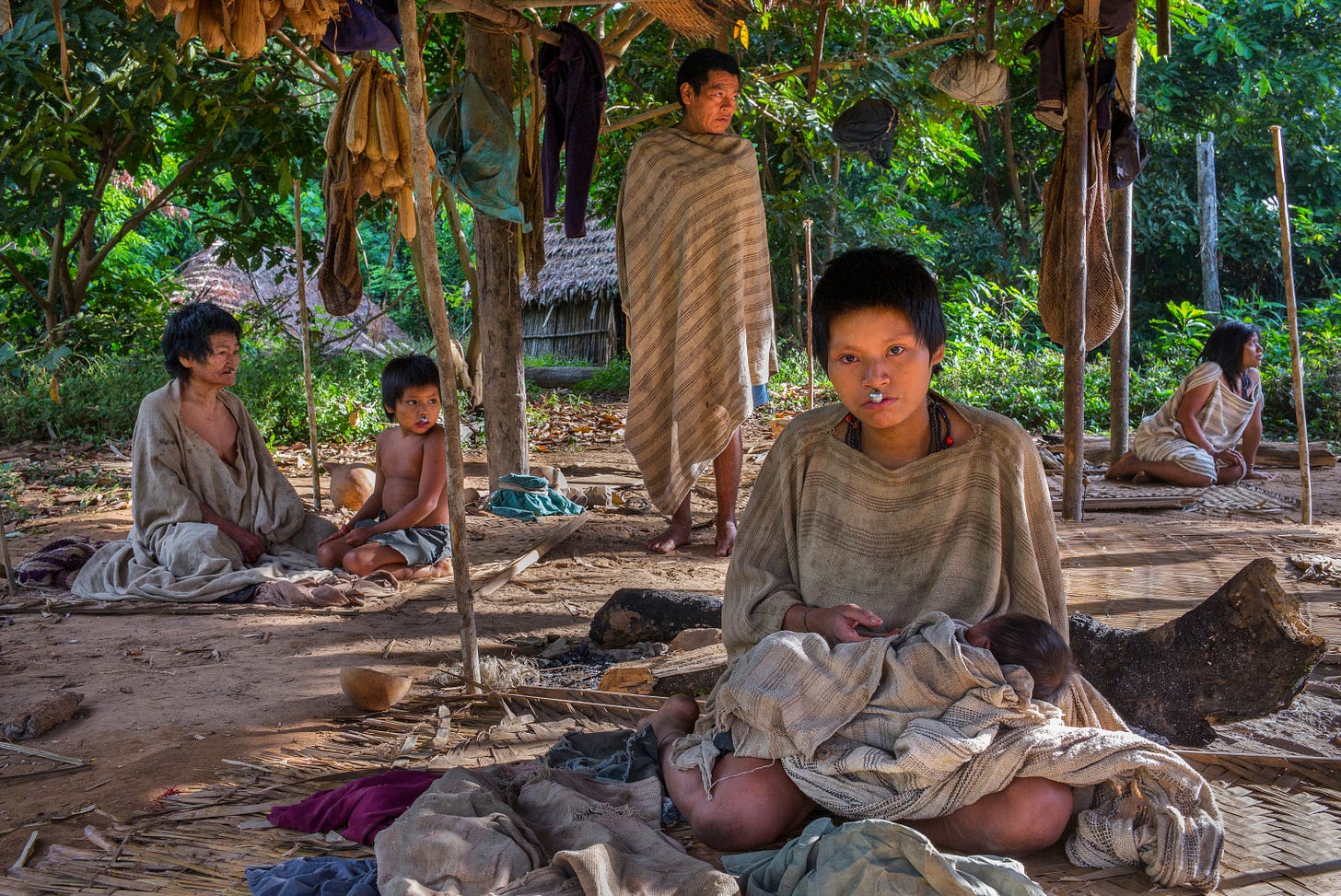I wanted to post some of the chapters and diary jots from my memoir ‘The Accidental Coca Lord.’ This one didn’t make it in, although I was always quite fond of it; so I thought I’d share it here.
From a chapter about working in the Indigenous community of Yomibato in Peru’s Manu National Park
Cornelio was long through process of maetagantsi, when he appeared in the village to eat all the dogs. Indeed, he’d been ‘growing fur’ for several months. He’d gone senile of course first; then died and had his nose plugged with taviri, in an attempt to smother the beast that lurked within him. But it hadn’t worked; he’d become a jaguar despite and now skulked ominously, in the shadows, along the edges of the village. The children were rightly afraid of him and for days remained chaperoned by older boys and adults; as they skipped and danced their way between the dispersed huts of the community. Cornelio shadowed them in the crepuscular hours though and killed their dogs when they lay idle and unalert.
One evening on our way back to camp he crossed the path in front of us. Rob and I were talking and didn’t notice him but Hilario, who walked behind us, did and became agitated, scolding us for talking too much and not keeping our eyes forward. We stood silently for a few minutes, listening for Cornelio and scanning the treeline ahead of us; but he was a jaguar now and could move with the stealth of spirits. After a few minutes we carried on, disappointed not to have seen him.
The following morning, whilst Rob was bent double with diarrhoea in the bushes by our camp, I followed an excited party of men and a woman into the forest with their bows and arrows to kill Cornelio. They moved fast and with purpose; reading, with extraordinary skill, an invisible trail through an unimaginable tangle of bushes and vines - through thickets and swamps, until they stumbled onto the corpse of Marcus’dog. Fresh, limp and intact; bar its throat, which had been ripped out – by Cornelio. There was much discussion and excitement and I crawled into the thicket to photograph it being retrieved by its neck. I couldn’t understand what was being said, I don’t speak Matsigenka, but ultimately the hunt stopped there. Perhaps the trail, invisible to me, was no longer readable in the tangle of the forest.
I photographed the discussion and dynamics. A woman, Maribel, who stood aside slightly from the rest of the posse, seemed to mock the others with mildly rabid outburst; joking to herself about them. She posed for me with a wry smile while I took her portrait. Dressed eloquently in brightly patterned skirt and red shawl, she looked strangely out of place in the chaotic filth of the forest. She was pretty, but strange and aloof. When she made comment on the men, as they pulled the dog free from the thicket, they ignored her; perhaps out of irritation or perhaps out of fear; after all, she was a witch.




